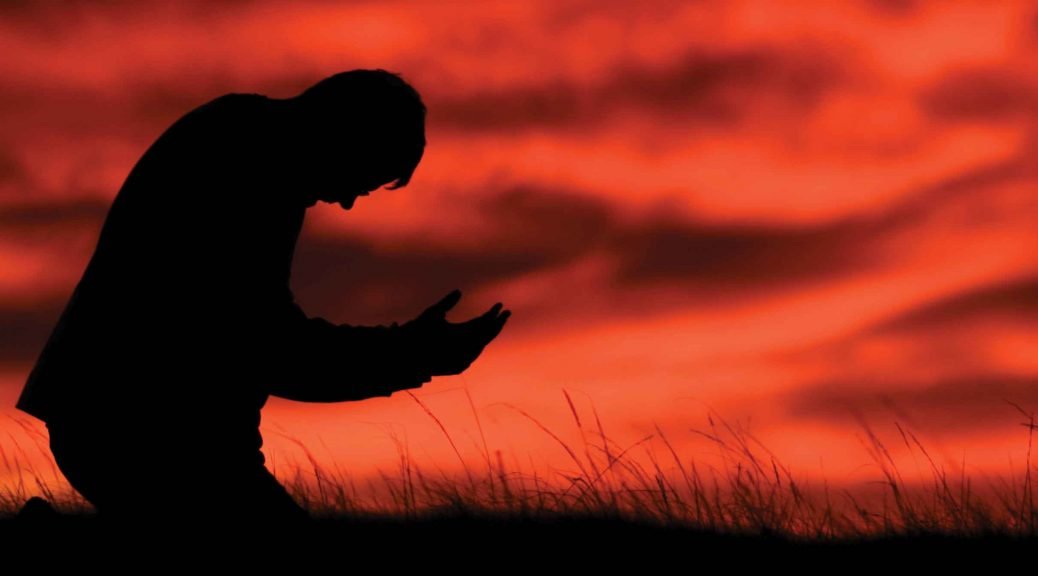Coronavirus and Asceticism
by Charles Ringma tssf
Much of the Christianity in the Western world has been focussed on blessing and much-having. One almost gains the impression that God has been cast as the perennial Father Christmas in the sky.
This one-sided notion of God’s relationship with us, has been somewhat dinted in this time of pandemic.
What most people are now grappling with is not the reality of blessing, but the challenges of pain and struggle in the midst of loss. And much has been lost – jobs, businesses, homes, health and general well-being. More that, our economies have received such a blow that recovery will take many years. And who knows what else will be lost in the aftermath of COVID-19.
Possible deeper losses may include the loss of confidence in our global order, in our governments, and in other social institutions. And some may be entertaining doubts about the church and other religious associations.
In countries that have not been so severely impacted by this pandemic, the refrain is – back to normal as soon as safely possible. And while this is understandable, I hope that this time of abnormality has taught us something so that there will be a new “normal” that we all aspire to and will work towards.
I believe that the hope for a new “normal” is also appropriate for the church. I hope that the present-day church won’t rush back to the old normal. This is important, because the church of the old normal has been too captive to the dominant ethos of contemporary culture, and has functioned too much on a business model for its institutional life. Moreover, the church has hardly exemplified its communal identity in Christ through the Spirit, and has failed to function as a prophetic community in society.
It is hard to predict what a new “normal” may look like for the church, but one lesson that can be drawn from our present circumstances, is learning from the present realities of loss. Rather than seeing loss as an enemy, we may learn to see it as friend. And loss is a companion to emptiness, and emptiness may be the seed-bed for a new receptivity.
Of course, it is right that we have emphasized gain in the Christian life. We have gained much through Christ’s redemptive love, even life itself. And in Christ, we have gained as gift the life-giving Spirit. But we have failed to accent the reality of loss. And loss brings us into the domain of asceticism, which from the Greek, asketikos, means sacrifice for the purpose of training and formation (as in a sport). And by way of application, sacrifice and self-discipline, for the sake of growing in Christlikeness and service.
Asceticism has not always had a good track record in Christian spirituality. At times, ascetic practices have negated the body, made salvation a self-effort, and reflected a distorted view of God. Bradley Holt rightly notes that a faulty asceticism “leads to despising God’s good gifts of creation: our bodies and the world around us.”
However, there have also been laudable perspectives and practices. While in religious orders and the priesthood, the dominant commitments have been poverty, celibacy and obedience, for the laity ascetic practices have traditionally included prayer, fasting and almsgiving.
But all of this can be framed much more basically. Asceticism is far more central to the Christian life than simply fasting. Coming to faith in Christ involves the loss of the old life of human autonomy and self-sufficiency, and embracing the new life in Christ. In coming to Christ, we hand over to him our sin and our goodness, in fact our very selves. This new life involves a life of obedience and openness to the Spirit. Thus, it involves the loss of going our way.
There is also more that we need to surrender. The love of God involves us in a commitment to seeing God’s shalom erupt into our world and the love of neighbour involves us in service to the other. What this means practically, is that we are willing to lay things aside and to sacrifice so that a something much better can swim into view.
In the light of these perspectives, it should be clear that ascetic practices lie at the very heart of Christian spirituality and service.
So, the question for us in this time of COVID-19 when we are already experiencing so much loss, is: what is it that we need to learn in anticipating the new “normal” about living more prayerfully and sacrificially? In other words, do we need to become more ascetic? Do we need to embrace loss in new and productive ways? Is the “desert” as important as the “promised land”? Is “not-having” as important as having?
In taking these questions on board we may need to hear the challenge of St. John Chrysostom: “those who live in the world, even though married, ought to resemble the monks in everything else.” Clearly Chrysostom is making the point that there should not be a huge difference between monks and the laity. “Ordinary” Christians also, need to live in community, practise hospitality, live prudently, live in obedience to the gospel, and live in fidelity. Thus, like the monks, we too need to practice asceticism and in relinquishing the good make may for the greater good in the Kingdom of God.
Charles Ringma, tssf.


